1. Big machines
Wow! Machines are big at the Hannans North Tourist Mine. Huge working machines that dwarf a human. Below is a 793C Haul Truck. It is a bit like Where's Wally to even find me in this picture.
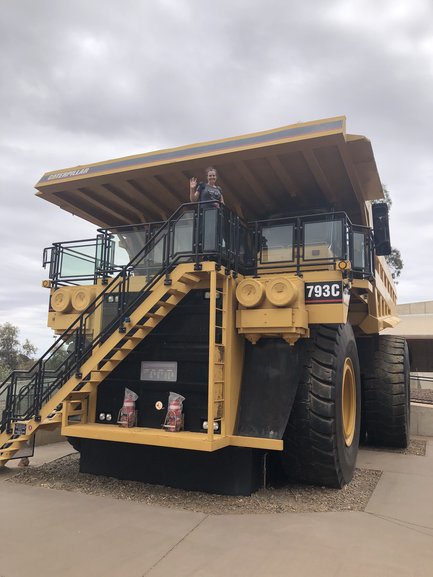
This flattened utility resulted from a 2005 safety demonstration in the Super Pit. A 793 haul truck was driven over the utility to show how difficult it is for a truck driver to see a vehicle. The driver did not even feel the utility under his truck. This is a reminder that the strict driver rules must be adhered to.
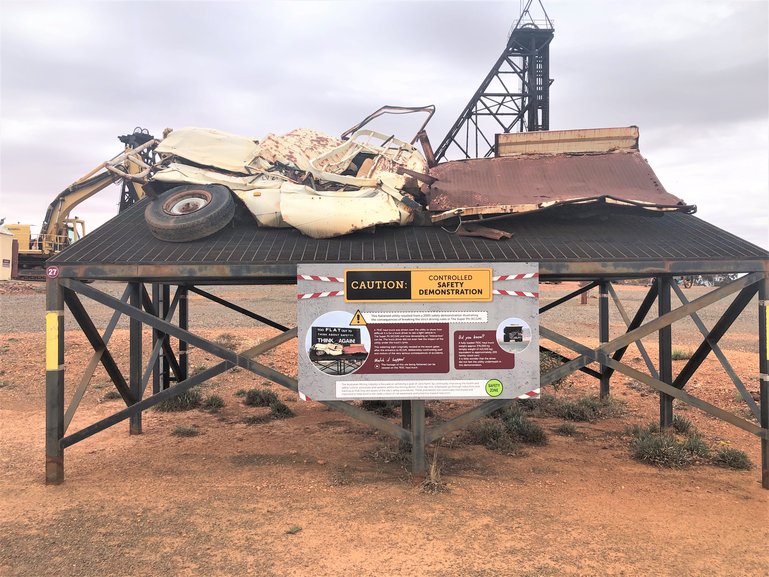
2. Signage
There were plenty of interesting signs around the tourist mine that gave a wealth of information on each different display and of stories from the local area.
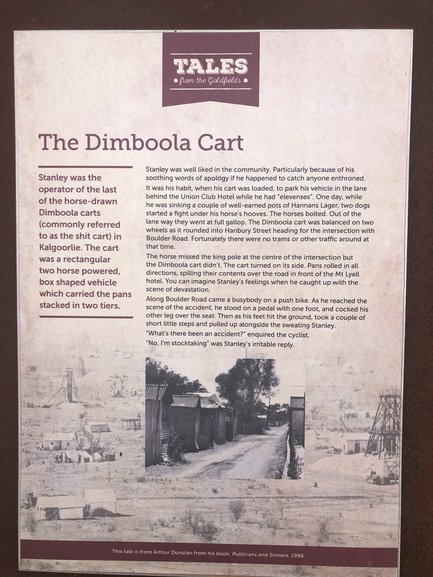
3. Housing of the Goldfields
Dwellings in the Goldfields were often primitive. Tents were made of canvas over a wooden frame. Dirt floors, furniture made from wooden boxes and packing crates were common. Some people constructed huts from corrugated iron and wood, but without windows or insulation.
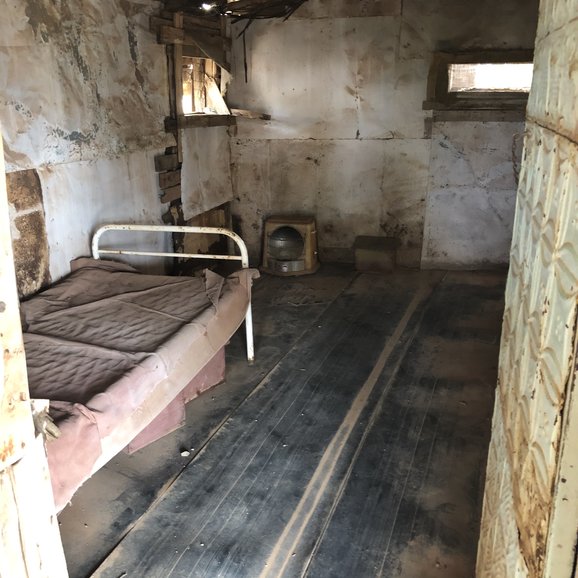
As time went by, housing improved. Miners cottages, known as humpies, were semi-permanent residences. They were still basic and crude, but welcome after a hard days work. On hot nights people slept outside hoping for a cooling breeze. With the arrival of the miners, their families came too. Schools, shops, churches etc. were established. Women worked in boarding houses, hotels, brothels and laundries.
4. Equipment of the Goldfields
Headframes used in the mines have been relocated to the tourist mine.
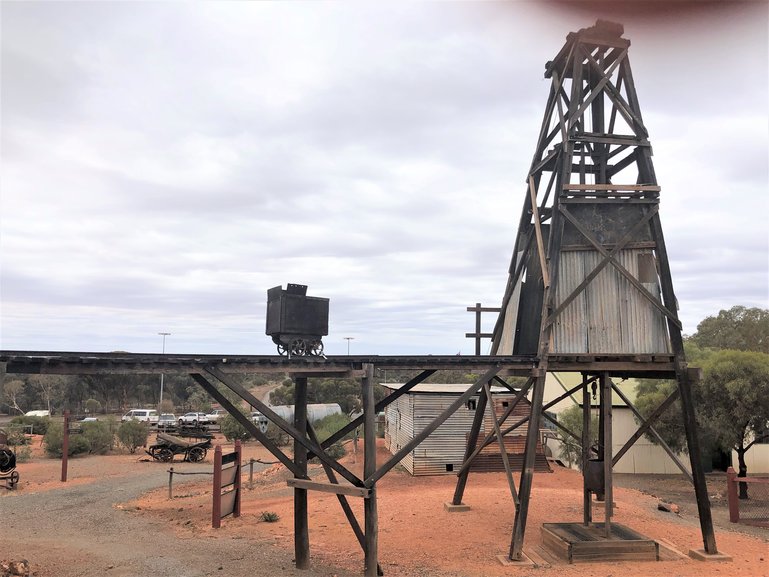
Gold is heavier than dirt, and miners needed a way to separate the gold. In areas with plentiful water they can wash the dirt away, but in the dry arid goldfields they used air to blow the dirt away. The machines used to do this were called dryblowers. Very appropriately named.
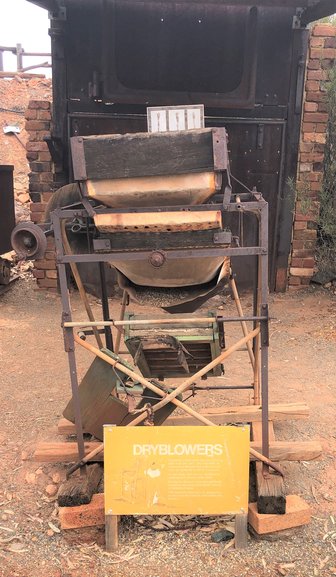
5. The Gold pour
I didn't attend on a Sunday which is when there is a live gold pour. However, you can still see the area they melt the gold in, and a video displays the procedures so you can understand the process.
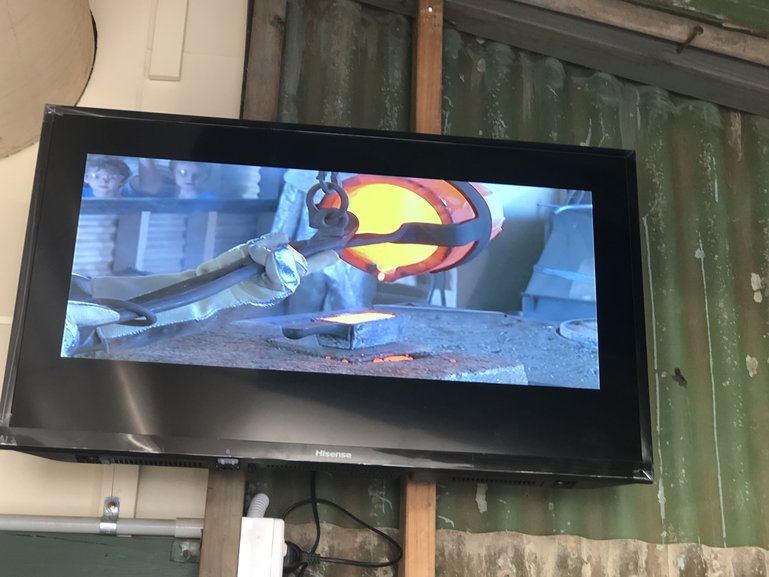
6. Drilling
A large shed shows different drilling equipment and information boards detail the changes in drilling over time.
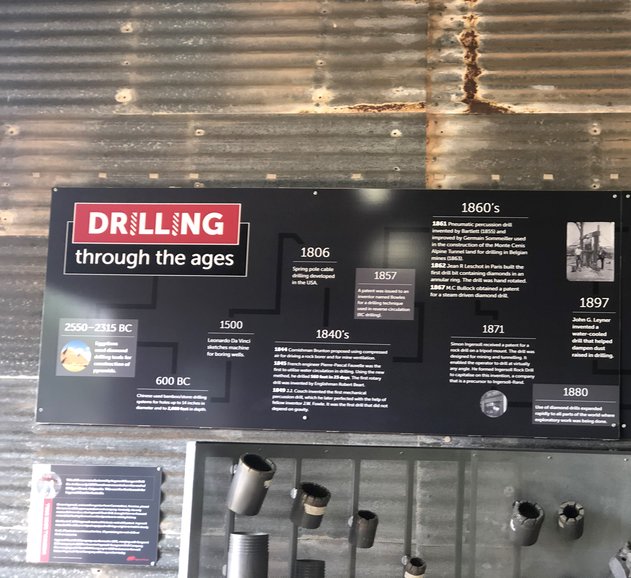
Life-sized drills are on display. The early airleg drill on the left below was used to drill into the rock so explosives could be planted and break large rocks into smaller ones. The drills were known as "widow makers" as they spewed out fine dust that entered the men's lungs and caused tuberculosis.
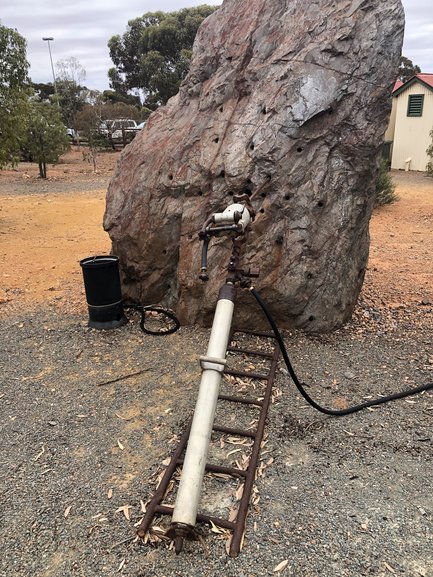
7. Old photos and cars
I loved the display of photos that captured moments in time. The picture below is taken in Hannan St, the main street in Kalgoorlie, in the early 1900s. The reason the street is wide is so that a horse and cart could turn around in the street.
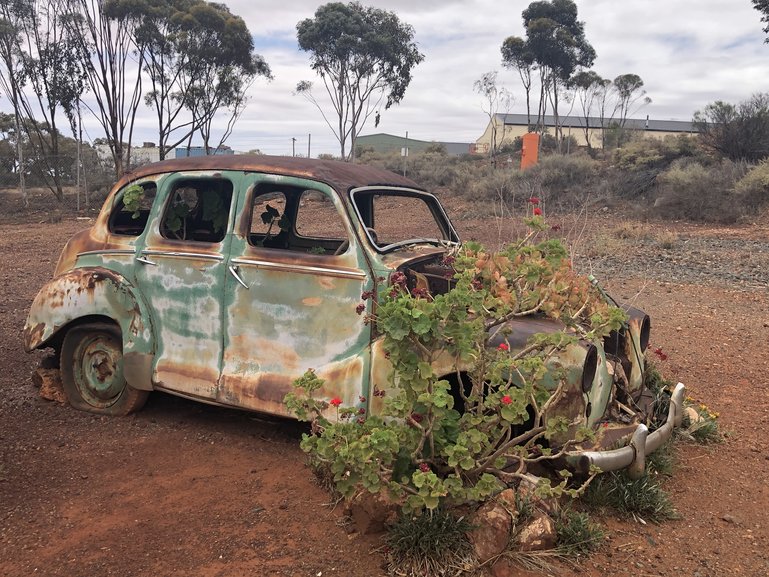
8. The Chinese Garden
There were no Chinese on the Eastern WA Goldfields, due to a sad "White Australia" policy. These gardens are a homage to the Chinese of all the gold fields in Australia. The elements of water, stone, plants and buildings "link the past with the present and create a spirit of time, place and hope for humanity." - word are from a sign at the garden.
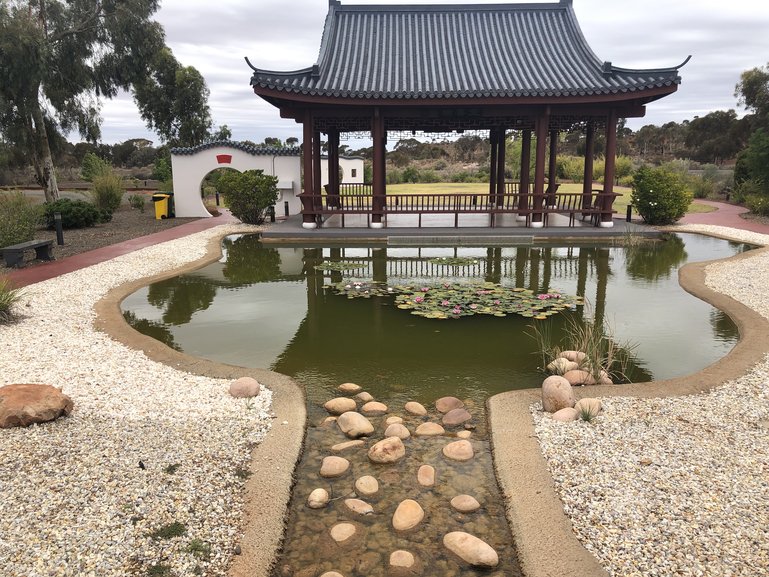
9. Modern Mining
Not all the displays here are historical. There is a modern underground refuge chamber on display that is built to sustain life during a hazardous situation. You can enter the chamber and sit upon a bench, as miners would if there was an emergency. In here they can breath fresh air, consume safe water, keep cool, monitor air toxicity, and communicate with the surface. A video presentation inside the chamber details its purpose and uses. Up to 12 people can survive in here for 72 hours, waiting for rescue.
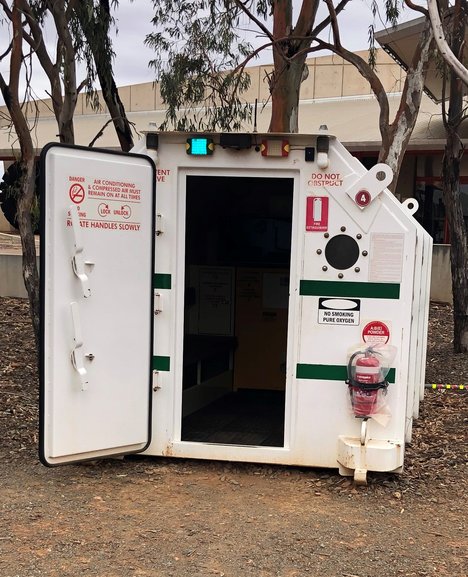
10. Pan for Gold
You can pan for gold yourself. There is a lovely area with a created stream, pans and instructions on how to give it a go for yourself. Any precious finds can be kept and taken home.

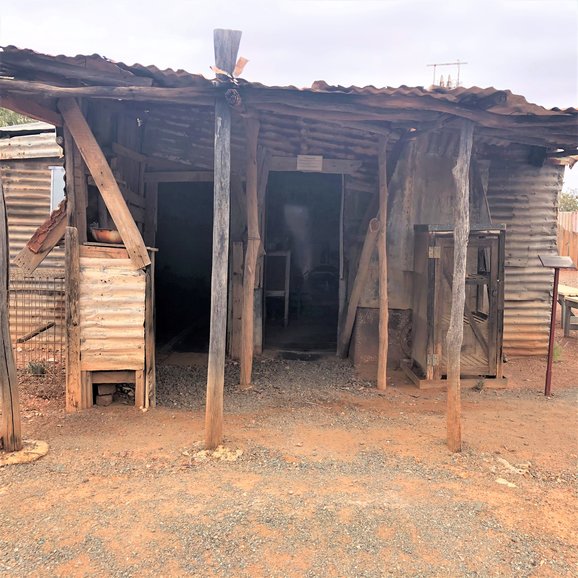
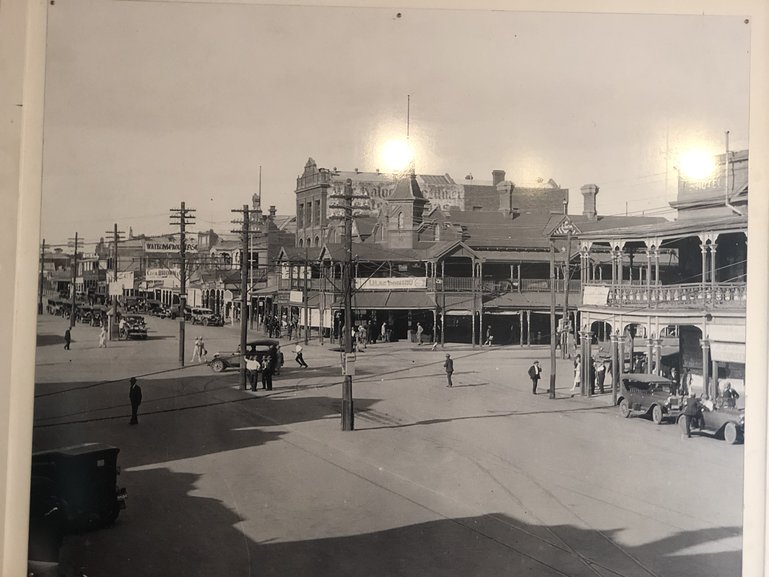
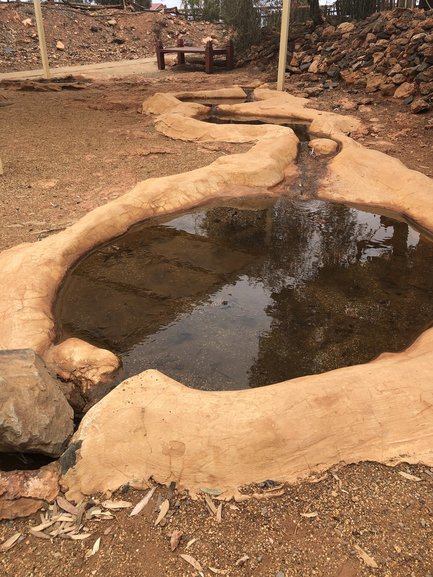

0 Comments